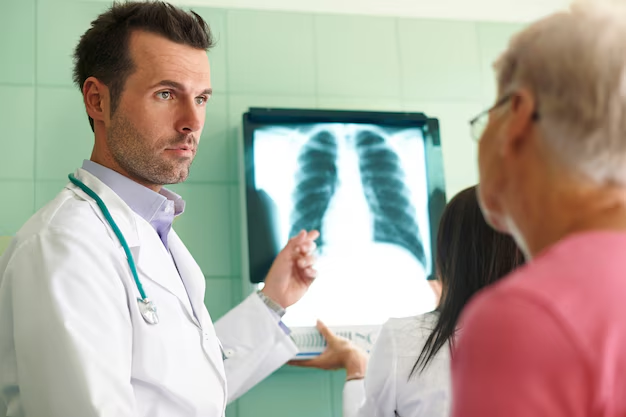Loading...

Pulmonology
- Chronic Respiratory Diseases: Management of long-term conditions that affect lung function.
- Chronic Obstructive Pulmonary Disease (COPD): A progressive lung disease that causes obstructed airflow, commonly due to smoking.
- Lung Cancer: Malignancy affecting the lungs, which may require specialized treatment and management.
- onary Function Tests (PFTs): Assessing lung function through tests like spirometry to measure airflow and lung capacity.
- Bronchoscopy: A procedure using a flexible tube with a camera to view the airways and collect tissue samples.
- Mechanical Ventilation: Assisting or taking over breathing for patients with severe respiratory failure.
- Smoking Cessation Programs: Support and resources to help individuals quit smoking and reduce lung damage.
- Pulmonology is a critical field dedicated to the health of the respiratory system, encompassing a range of conditions from chronic diseases to acute respiratory emergencies. Pulmonologists use advanced diagnostic tools and a variety of treatments to manage and improve lung health. Through preventive care, lifestyle changes, and specialized therapies, pulmonology aims to enhance the quality of life for patients with respiratory conditions and address both common and complex lung-related issues.

